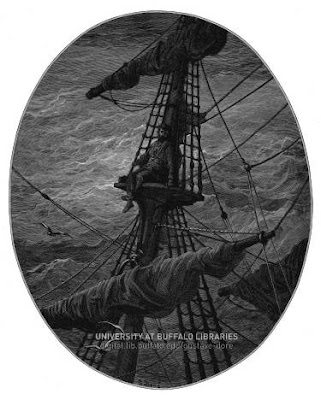Yesterday Debbie sent me a talk she had heard online about relationships. (Actually it was a sermon, but kind of interesting all the same.) The pastor mentioned several theories about how we choose the people we fall in love with, one of which was that we choose people who are like one of our parents. The explanation had to do with healing the traumas of childhood, but I wonder if it isn’t simpler to say just that these are the personality types we grew up with, so we understand them and feel at home with them?
As I listened I thought about myself and decided that this is a pretty easy case to make for me: Wife and D are both like my father (loud, opinionated, narcissistic, always the center of any gathering, outwardly domineering but with a surprising lack of self-confidence beneath the surface), while Debbie is a lot like my mother (quiet, comfortable in silence and solitude, deeply ethical in an unobtrusive and tolerant way … they even look alike physically). So when I called her later and we talked about it, I explained this and asked if it is true for her too.
At first she wasn’t sure. She easily pegged her second husband as being a lot like her mother: no-nonsense, matter-of-fact, emotionally cold, and severely critical. Then I asked, “OK, how about me?” She said, “I’m not really sure. What comes to me first about you is your emotional warmth, and I don’t know where that fits in.” I reminded her that she had described her first husband as emotionally very warm as well, not to mention a couple of boyfriends. She continued to sound puzzled about how to fit this data into the theory about marrying your parents – indeed, about whether it fit at all – until I asked, “You haven’t told me much about your dad. What was he like?” I knew he was an alcoholic while she was growing up, but what else?
And I swear as I am sitting here typing this that the first words out of her mouth were, “My father was emotionally very warm.”
“Go on.”
“Also he was curious, interested in things, … a lot more open-minded and open to the world than my mother ever was.”
“Yes?”
“And he was very passive – almost to the point that he couldn’t answer a question like, ‘Do you want a ham sandwich or a turkey sandwich? Do you want a sandwich or soup?’ He let my mother run everything. I actualy think that’s where his drinking came from later – that he felt trapped in his life, that he was suffering, and that he didn’t think he had any choices. He didn’t think he had any way out.”
Now let me pause here and ask: does everybody else see what I see?
“Debbie, dear heart, you’ve just described me. OK, maybe I’m not that passive any more, because I have worked hard at overcoming it. But when Wife and I were first married one of her running lines was, as she put it, ‘Chocolate or vanilla, Hosea? Pick one!’ And it was very hard for me to do. Plus, about ten years ago when the boys were a lot younger, there was a period of time when I ate and drank far more than I do now. I was probably seventy pounds heavier than I am today and I put away a fair bit of alcohol … all for exactly the same reasons. I was unhappy with my life and didn’t think I had any options because I was responsible to the boys and I had given marriage vows to Wife. So I ate and drank to insulate myself from it all. It’s true that I backed away from the precipice: I didn’t have a heart attack [knock wood] and I never fell into full-fledged alcoholism. Gradually I figured out how to make small positive changes in my life … disentangling myself from the net one strand at a time. And as I did those things, I gradually ate and drank less, and the weight began easing off me. But I totally get why somebody could end up in the place where your father did, because that could easily have been me.”
She was very thoughtful at this. Apparently she hadn’t seen the comparison before. Then she asked a few more questions, and we talked for an hour.
I don’t know if I’m sold on this theory as a general rule, just because it seems to apply in two cases (out of billions). But it was an interesting evening. If you’ve got a minute with nothing else to do, let me know if you think it works in your case too ….




